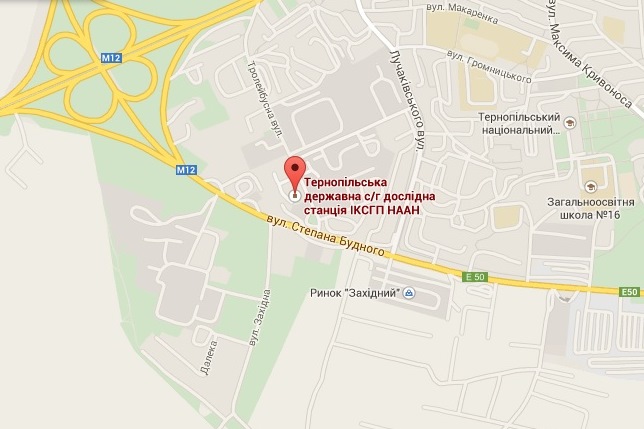| Головна » Статті » Конференція_2016_10_20-21 » Секція_6_Соціально-гуманітарні науки |
Onufriienko Oleksiy, Ph.D. in Law, Associate Professor, Doctoral Candidate of the Department of Public Administration and Local Self-Administration of Dnipropetrovsk Regional Institute of Public Administration of the National Academy of Public Administration Dnipro
quasi-autonomous non-governmental organiSationS AS IMPORTANT PART OF THE UNITED KINGDOM CIVIL SERVICE
Problem setting. The evolution of the state and society, in particular, within the institutional aspect, occurs in terms of a complex dialectical interaction of traditions and innovations. The experience of observing the development of the United Kingdom civil service in the last quarter of the 20th century and the early 21st century represents the established traditionalist and conservative paradigms being unable to prevent the system modernisation, but meanwhile certainly slowing the process. Taking into account the undoubted fact that the attempts to modernise the national civil service are mainly reduced to reasonably appropriate substantiation of the need to adopt the foreign experience of efficient managerial decisions and mechanisms, quango as an important constituent of the United Kingdom civil service modernisation is surely challenging to research. Comprehending thereof made it possible to state a complex objective of the related research, namely: to analyse the experience of quasi-autonomous non-governmental organisations (quangos) functioning as a special part of the United Kingdom civil service by applying the latest data available, to generalise positive and negative aspects of such modernisation and based on the results obtained to appraise the significance of quango for global processes of civil (public) service modernisation and to define prospects of introducing such an experience within the national background. Recent research and publications analysis. Civil service models in whole and some their components apart, peculiar features of their development and modernisation within the comparative aspect are subjects of studies of scholars, both national (M. Bahmet, V. Bakumenko, N. Honcharuk, Kh. Deineha, S. Dubenko, H. Dutchak, Yu. Kovbasiuk, N. Lypovska, P. Nadolishnyi, O. Obolenskyi, L. Prokopenko, S. Seriohin, V. Sharii etc.) and foreign ones (O. Barabashev, D. Bossart, С. Demmke, Zh. Ziller, A. Nozdrachev). The works of a Russian scientist A. Obolonskyi are worth mentioning among them, for he was among the first to study the relevant aspects of the United Kingdom civil service modernisation. Globally speaking the notion ‘quango’ should be understood as any quasi-autonomous non-governmental organisation to which the power of authority in accordance with the devolution procedure is delegated by governmental bodies and which is financed or at least supported by them. In the 2000s the term was generally recognised as the bodies partially or fully financed by governmental departments, or as the bodies even functioning on a self-financed basis and hardly depending on the government. It stands to mention that the term ‘quango’ is not used at the level of the United Kingdom government’s official acts, though it has earned widespread appreciation in scientific, scientific-journalistic editions and political circles, de facto generalizing the whole range of specific bodies that differ by nature: Non-Departmental Public Bodies, Non-Ministerial Departments etc. The main quangos are Executive quangos, Advisory quangos advising ministers on special issues, Courts-Martial (specialised courts) and inspectorate boards (Boards of Visitors) that supervise the prison system. Quango’s substantive work covers all aspects of social relations, namely: quangos function in the energy, environmental protection, tourism, sports, health care, science and technology, museology fields etc [1; 2]. Conclusions of the research. 1. The analysis of subject-matter resources clearly shows chiefly narrow, instrumental view of quasi-autonomous non-governmental organisations as a constituent of the British civil service. It is fairly predetermined by the concept of the reform writers’ (“new managerism”) who aimed to enrich the public administration practice with the experience adopted from the realities of a successful private sector. However, the result of reforms has gone beyond the simple “commercialisation” of the civil service. There are reasonable grounds to state a new stage of the institutional convergence between the civil service bodies and civil society; it appears that these processes have been yet insufficiently described in the national scientific literature. Quangos themselves are a unique hybrid of the civil service and civil society institutions being able to fundamentally change the current approach to the civil service management in the long view. 2. Negative aspects of quango functioning have chiefly been traced due to the detailed research of the full range of the civil society institutions. It has resulted in the principal paradox of the British civil service reforms: quasi-autonomous non-governmental organisations are substantially being regarded as a new part of formalised civil service, rather than a hybrid institution aimed to remove the existing confrontation between the state and civil society among other things [1]. We suppose that public mind must undergo the relevant changes, which will make it possible not only to free off the biased attitude towards quasi-autonomous non-governmental organisations but also to establish framework for further convergence of public administration bodies and civil society institutions. Despite the Ukraine’s traditional orientation on the continental and European civil service models, we consider it necessary to evaluate future directions of using quasi-autonomous non-governmental organisations as a particular part of the civil service within the national background, at least at the level of analysing the quango functioning experience that has been gained in the United Kingdom for the latest decades.
References 1. Lewis Dan. The Essential Guide to British Quangos / D. Lewis // London: Centre for Policy Studies, 2005. - 104 p. [Електронний ресурс]. Режим доступу: https://www.cps.org.uk/files/reports/original/111028110058-quangoesproofcopy.pdf 2. Pifer Alan. Letter: On Quasi-Public Organizations; Whence Came the Quango, and Why / A. Pifer // The New York Times. - 1987. - September 5. [Електронний ресурс]. Режим доступу: http://www.nytimes.com/1987/09/05/opinion/l-letter-on-quasi-public-organizations-whence-came-the-quango-and-why-969587.html?pagewanted=1 | |
| Категорія: Секція_6_Соціально-гуманітарні науки | Додав: Admin (19.10.2016) | |
| Переглядів: 213 |
| Всього коментарів: 0 | |



